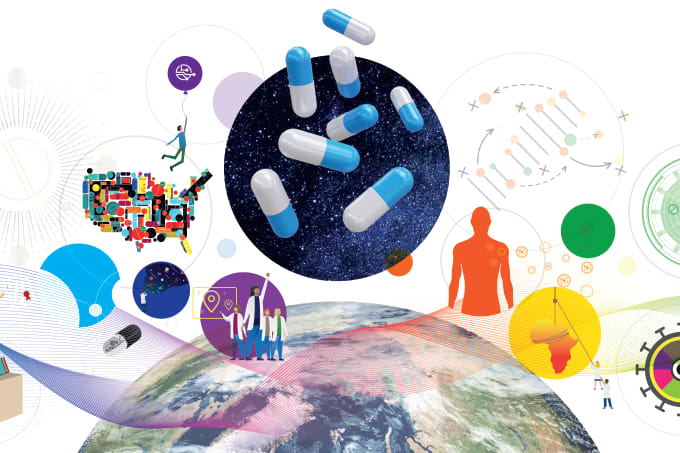One of the hottest topics in the biopharmaceutical industry today is “continuous bioprocessing”. Buzzwords such as “process intensification”, “next generation bioprocessing”, “process optimization”, and “integrated, connected manufacturing” are prevalent in industry conference programs and biopharma trade publications. This is no surprise considering that by 2025, it is expected that 20 percent of revenue from molecules that are still in the pipeline today will come from drugs manufactured with next generation technologies. It is estimated that roughly 35 percent of today’s commercial molecules will utilize process intensification methods within the next 5-10 years (1).
There are numerous hurdles to the adoption of next generation bioprocessing – system complexity, expertise gaps, undefined regulatory guidelines, availability of control and analytics, and, of course, costs, just to name a few. However, despite these well-recognized barriers, small and large biopharmaceutical manufacturers are actively evaluating and implementing process intensification technologies. This evolution is driven by striking advantages such as significant productivity gains, elimination of capacity constraints, increased flexibility and reduction in costs of goods sold (COGs).
But what actually is next generation bioprocessing? How are industry players defining next generation bioprocessing and how will they pursue and successfully implement this approach? And is continuous bioprocessing always the ultimate end goal drug manufacturers around the globe are, or should be, striving for?
In the following articles, experts from both biologics manufacturers and from Merck provide their insights and perspectives on the on-going paradigm shift towards next generation bioprocessing occurring in today’s and tomorrow’s biopharma landscape.
Change is never an easy process, but it is only through change and innovation that we can solve the problems with which we are faced. Within Merck, we embrace and live a culture of continuous improvement and innovation to advance the industry. Exciting times are ahead of us. Let’s shape the future of bioprocessing together.
Darren Verlenden
Vice President, BioProcessing, Merck
References
- This research comes from a market assessment commissioned by Merck





